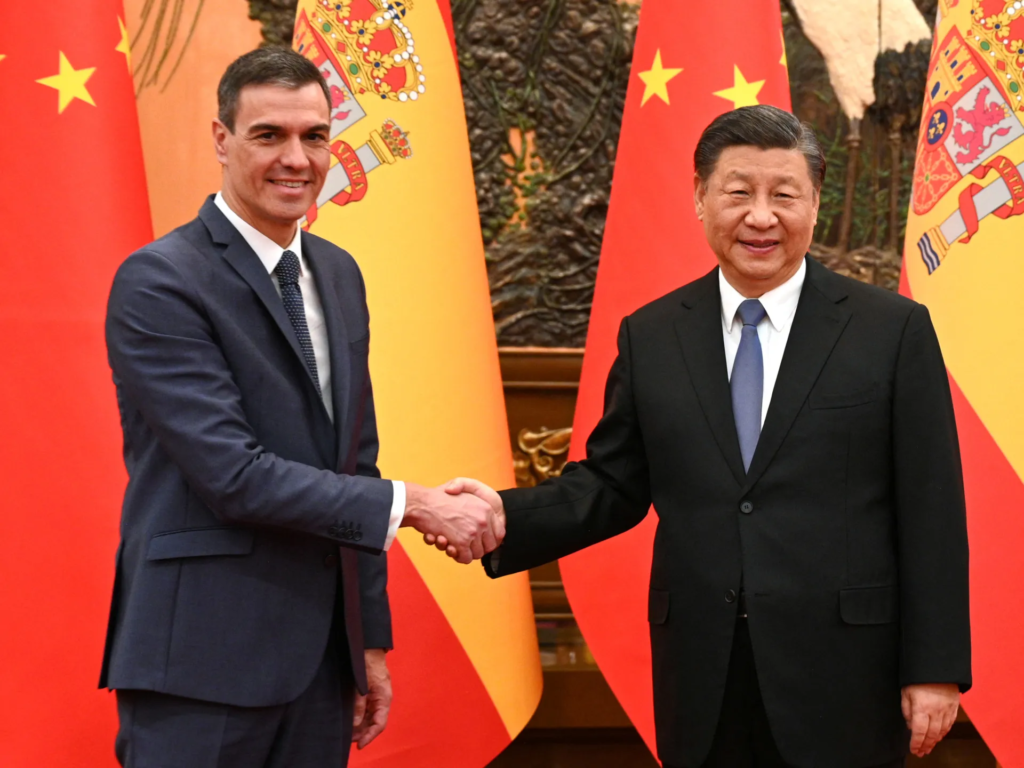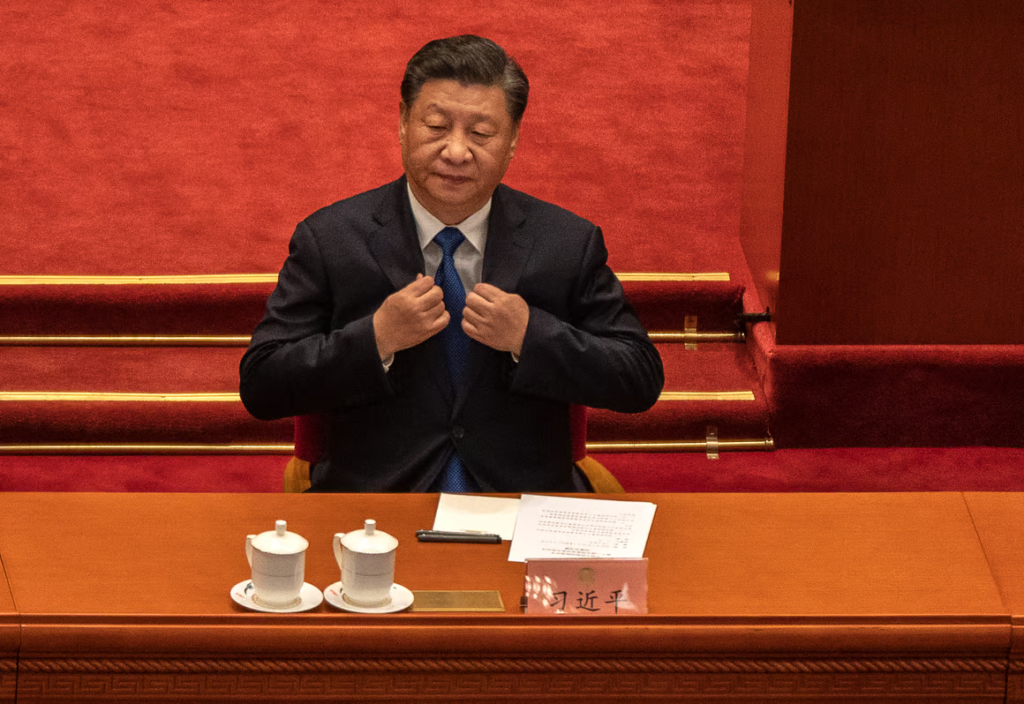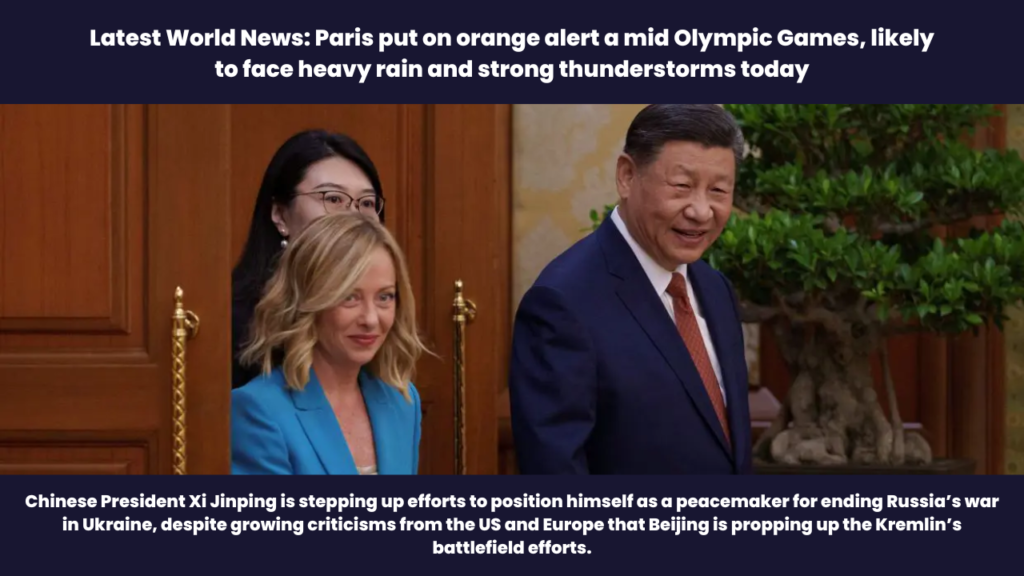Chinese President Xi Jinping is stepping up efforts to position himself as a peacemaker for ending Russia’s war in Ukraine, despite growing criticisms from the US and Europe that Beijing is propping up the Kremlin’s battlefield efforts.
With Moscow and Kyiv facing pressure at home and abroad to find a way to end the war, China last week hosted its first senior official from Ukraine since the conflict began in 2022. While Foreign Minister Wang Yi told his Ukrainian counterpart Dmytro Kuleba the time was “not yet ripe” for peace talks, he said both sides were now signaling a willingness to negotiate.

Beijing followed up that outreach on Sunday by dispatching its special envoy Li Hui to Brazil, South Africa and Indonesia to “build up conditions to resume peace talks” — countries that have also skipped imposing US-led sanctions on Russia.
The flurry of activity underscores Xi’s ambition to forge a bigger diplomatic role at a time when Kyiv — and the broader European region — are bracing for a dramatic shift in foreign policy from their most important ally. Republican candidate Donald Trump has vowed to end the war in Ukraine “within 24 hours” if he wins the US election, while his vice presidential candidate, JD Vance, has been critical of support to Kyiv.
China hasn’t shifted its stance but sees a window to establish itself as a more powerful player, said Alexander Gabuev, director of the Carnegie Russia Eurasia Center, adding that negotiations could take place as soon as this year.
“China is positioning itself for later rounds of talks,” he said, noting that departing President Joe Biden could also seek a deal to secure his foreign policy legacy. “Beijing wants its own share of the success and to position itself to play a constructive role and be celebrated for that.”

Beijing’s outreach comes after President Volodymyr Zelenskiy’s government announced it was open to Russian leader Vladimir Putin attending a second peace summit it’s targeting before the US vote in November — a condition for Beijing’s attendance. While Xi has been touted as a potential negotiator for his ties with leaders on both sides, Beijing’s support for Russia has cast a long shadow over his government’s claims of neutrality.
Italian Prime Minister Giorgia Meloni views Xi as an important stakeholder in Russia’s war in Ukraine if Trump pulls back support, Bloomberg earlier reported, citing people familiar with her thinking. The far right leader offered to broker better ties between Beijing and Europe in a Monday meeting with Xi.
That move comes after Zelenskiy stressed Beijing could become a “mediator” with the US in ending the war in an interview with Bloomberg News. Kyiv has maintained ties with Beijing even as the US and Europe have threatened Chinese banks with sanctions over bolstering the Kremlin’s war machine.
Xi is working to boost his peacemaker credentials in regions where Washington has traditionally played a larger role, as the world’s biggest economies jostle for global influence — a mission that has united China and Russia. Last year, Beijing surprised Washington by presiding over the closing of a detente between long-time rivals Saudi Arabia and Iran.

Ukrainian foreign minister Kuleba’s visit came as Beijing gathered Palestinian rival factions to sign an agreement to establish an interim reconciliation government. While that deal — dubbed the “Beijing Declaration” by the Chinese side — lacked details for how deeply divided adversaries such as Hamas and Fatah would work together, it signaled Beijing’s rising influence abroad.
“China will play a more important role in peace negotiations, in peacemaking and talking — not just in the Middle East and Ukraine but even globally,” said Wang Yiwei, professor of international relations at Renmin University.
That’s because the Global South bloc of developing nations increasingly trusts Beijing’s approach to diplomacy, which vows not to interfere with domestic affairs, he added. Ukraine would see China’s endorsement of any peace plan as a sign of Russian commitment, Wang said.
Exemplifying China’s cautious approach to Ukraine, however, Kuleba’s meetings last week were confined to the southern city of Guangzhou rather than being centered in the capital, Beijing. The Ukrainian official followed those talks with a stop in Hong Kong, where he warned the Chinese city’s leader about enabling Russia’s efforts to avoid US sanctions.

Europe would likely want reassurances about further Russian expansionism from any Ukraine settlement. Fears are growing that Putin could extend his ambitions to Baltic states that are North Atlantic Treaty Organization members, risking a bigger conflict with the defense alliance.
Whether Beijing would be willing — or even able — to try to secure guarantees of Russian restraint is unclear, said Ja Ian Chong, an associate professor of political science at the National University of Singapore.
“Right now, the optics suggest Beijing is using Ukraine for its own purposes rather than offering any practical steps toward peace,” he added.
With assistance from Josh Xiao.
This article was generated from an automated news agency feed without modifications to text.


